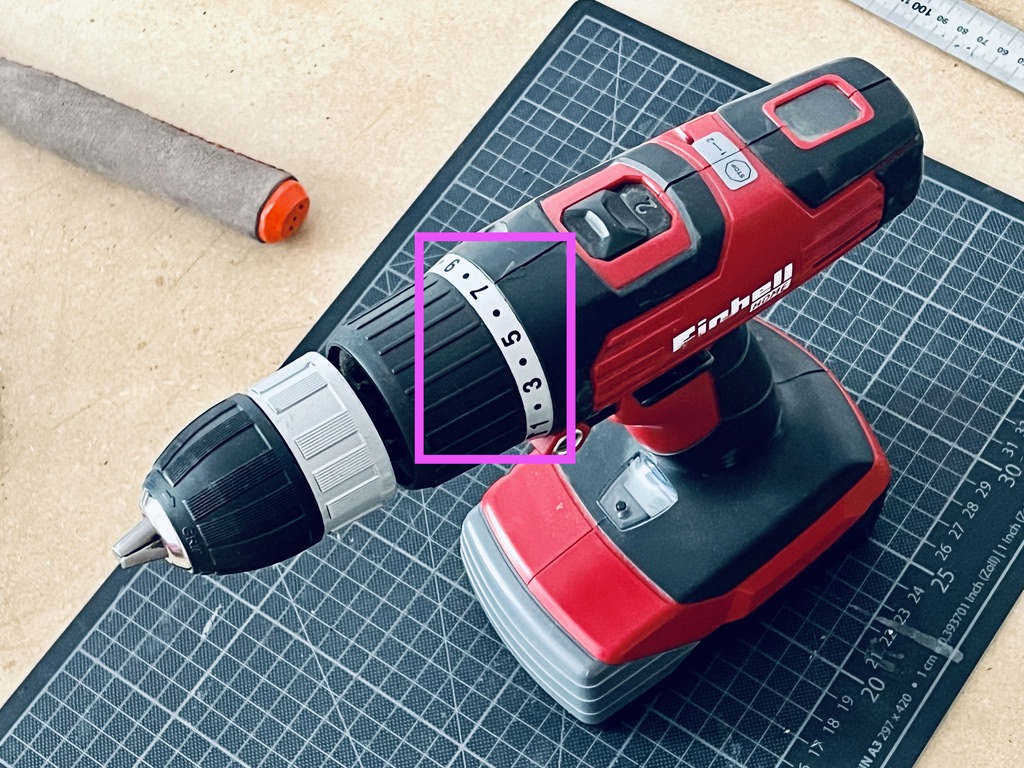The User Is On Their Own
We either expect people to be super self-sufficient, or complex things to be super easy.
2024-05-01

We either expect people to be super self-sufficient, or complex things to be super easy.
Whenever the design of user interfaces comes up, one quality is almost always mentioned: it should be intuitive. What does “intuitive” mean here? Easy to learn from the ground up? Difficult to make mistakes with? Simple? Maybe any combination of these and more.
If I had to summarize or define this vague requirement of “intuitive”, I’d probably say somethings like “a person using this thing should be able to work it out with reasonable effort”. What is reasonable effort is would depend on the task. Figuring out how to post a photo to Instagram should require very little cognitive thought while working out how to do your taxes by yourself, even if the process is really well-designed and optimized can take some time and work simply because there’s a lot more variables in that case. Unless bot hare literally 100% automated, these two things are just not going to be on the same level of required effort, no matter what.
When are things not intuitive? I’d say when you need someone to explain them to you because within that window of reasonable time and effort you weren’t able to work it out on your own.
Now, given these definitions, what things in life are intuitive? I believe the answer is: almost none. Some things might seem obvious but did you really figure them our by yourself or did you learn them so early in life and through so much repeated observation of other people that you just assume them to be obvious? Right now I’m looking around my room, checking every object I can see, and thinking about how “obvious” its usage is and the only things where I can really apply that term is a big plushie whale and a blanket. Maybe I could stretch it a bit to include a chair but I’m not sure about that one.
Ok, but this extremely narrow definition is not really helpful. When navigating new situations in life we don’t start from zero each time. Big foundation we build on is language, whatever form it takes, along with basic understanding of the physical world. A button that says “power” will probably turn a machine on and off. If I can read the word “power” and I know about that a device needs electricity, I can probably connect those two things. My AV receiver has a “power” button, that one’s easy, but it also has a “VCR” button. If I had been born 10 or 15 years later, I might not even know what a VCR is or what it has to do with my amp. But I know what a VCR is and how these two devices are related so I was able to figure out that it’s just another input that could be used for a video cassette player, but I can use it for something else that has the same cable connectors. Is that still intuitive? I’m not sure. It requires quite a lot of background knowledge and historical context which I happened to have.
And then there’s a whole range of cases where people don’t have to know exactly how something is intended to be used in order to successfully finish a task. I recently ran a poll on Mastodon/Fediverse about on of these cases to showcase this. I asked people what the rotary dial on a power drill does. This one:

I asked:
Quick question: If you have used a power drill more than once before, do you know what the number setting actually does?
The possible answers where:
- Yes, it adjusts the torque of the motor
- Yes, it adjusts the speed of the motor
- Yes, it adjusts the torque of the head
- Yes, it adjusts the speed of the head
- I don’t know
The correct answer is number 3. The dial adjusts how much torque will be applied at the head before a clutch mechanism disengages to prevent any further torque, which leads to the ratcheting sound that power drills sometimes makes. When that ratcheting happens, it means the drill has reached the selected level of torque and if you want more, you have to select a higher number. On the “drill” (and optional “drill-hammer”) setting which is often at the top end of the scale, the clutch never disengages so you get the maximum possible torque. This video goes into much more detail and also explains how this purely mechanical setting works. With this setting you can make sure that screws aren’t over-tightened or driven to deep into a pice of wood for example. The result is more consistent results and safer use of the tool.
Only 55% of responses got this right, although given that the Fediverse leans on the nerdy side of things, I assume this is a higher number than in the general population. 27% said they didn’t know and the remainder chose one of the wrong answers.
Still, power drills are common in many households and used to achieve tasks all the time, even when people don’t exactly know what’s going on. The outcome of not knowing is mostly a lower quality, e.g. screws driven to inconsistent depths, maybe a stripped screw here and there, but over all the job gets done.
I’d argue that a power drill is barely intuitive because people can use it successfully without instruction but mistakes are easy to make. And a power drill is a really simple device. It mostly has two controls, sometimes three, if it’s a fancier one with a gear switch, and only one it strictly necessary to use it: the trigger button. Yet even at this low level of complexity the device is not well understood by man of its users.
Other machines we operate in our daily lives are far more complex. A car for example is a complex device with many functions, parts, settings, maintenance protocols, consumable materials (gas, oil, etc.) and operating it in its intended environment (traffic) is a highly complex task with high risk. IF you mess up, people can die. It’s therefore entirely reasonable that we as a society don’t just hand out cars to anyone who can afford one and send them on their merry way. Many countries around the world require more or less extensive driving education and enforce various levels of regulation to ensure a baseline of safe operation because it would be utter mayhem otherwise, much than it already is. And even without the mandatory education and rules, it would be unreasonable to sit someone with zero experience in a gas powered car and expect them to even get it going at all. Electric cars make it a lot easier but it’s still a big stopgap.
A lot of devices people use in their professions are also entirely unintuitive. Try putting someone in front of a lathe with no instruction. They might destroy a very expensive machine or severely injure themselves, maybe both.
Even something common and simple as a vacuum cleaner requires some instruction. If nobody tells you to change or empty the dust container, it’ll just get worse and worse at cleaning up dust and eventually stop working entirely.
We as modern humans are definitely used to things that require learning and/or teaching in order to be used effectively or even used at all.
So, why do we expect any of this to be different with the most complex machines many of use in our daily lives: computers? (and phones and tablets which are all computers in the end)
Somehow we expect people to find their way around the gigantic mess of modern computer user interfaces made of hardware, operating systems, apps, and online services basically on their own and we consider it a failure of either the user or the design if this doesn’t work.
The experts among us roll our eyes when we see the workflows that people come up with in order to do the things they need done. At the same time, a lot of people are annoyed and frustrated when these complex machines don’t “just do” what they want which would often basically require a literally magical knowledge of what the user’s expectations and needs actually are and these would be different for every user.
This creates a gulf between what one side thinks should be possible with available resources — every developer has heard a complaint followed by “why don’t you just do X?” where X is a near impossible thing or so difficult or time consuming to do that they will never be able to do it — and what the other side thinks is needed, with developers and designers who often are skilled computer users wildly underestimating the difficulty of navigating and using their products and overestimating the amount of time and energy many user are able and/or willing to put into it.
Computers are deeply engrained into our lives, often basically mandatory, yet as as societies and communities we provide little or no guidance on how to use them. We leave people alone with the truly daring task of learning the ins and outs of some of the most complicated machines humanity has constructed. There’s a toxic individualism to all this that requires people to fend for themselves and shames them if they don’t so a perfect job at it. The ones who pass through this gauntlet and emerge as confident experts on the other side internalize the process and end up believing it’s how things should be, many get stuck in between, forever doomed to frustration to being at the mercy of systems that are opaque and hostile to them, and some are excluded entirely, by lack of support and resources, accessibility problems, financial barriers since courses are expensive, etc.
This is made worse by the fact that things change at a dramatic speed. While driving a car and using a power drill is something an e.g. parent, teacher, older sibling/friend can teach you as part of growing up in a community (provided you have a community), the computer skills of someone from 20 years ago will not easily transfer to the tasks someone who is new to computers faces today. Sure, I can get shit done with command line tools that are almost as old as I am, but I can’t expect this approach to work for people 20 years younger than me, because I can only do this because I went through the mess of using a computer already and learned quite advanced skills along the way.
I don’t have an clear actionable answer to these issues and this piece is more of a rant than anything else but I do think it’s useful to keep these problems in mind when designing interfaces, explaining concepts, or just being empathetic with people who struggle.
I’m not convinced that making interfaces so simple and “intuitive” that anyone can truly learn them on their own is even possible, maybe not even desirable since it encourages more of that kind of rugged individualism in computing and eliminates a lot of creative potential through locked-down apps and systems. I see a lot more value in community support, good documentation and accessible learning resources. Because in a lot of cases the seemingly cumbersome, unintuitive way is actually the better one in the long run, as long as people are taken along for the ride, having their needs seen and changes to systems made where appropriate.